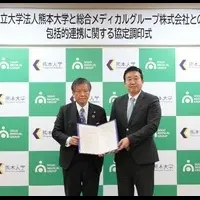
Immunovia Reports 2024 Results, Holding Promise for Pancreatic Cancer Detection
Immunovia's 2024 Financial Overview and Future Directions
Immunovia AB, a pioneer in the diagnostic industry focusing on pancreatic cancer detection, has recently published its full-year report for 2024. The report highlights an important quarter that sets the stage for both financial and operational advancements that could revolutionize early-stage cancer diagnosis. The findings underscore the company's commitment to transforming the landscape of pancreatic cancer screening through innovative testing solutions.
Financial Highlights
For the last quarter of 2024, Immunovia generated net sales amounting to 455 KSEK, primarily driven by royalty income. Although this reflects a growth compared to last year’s 155 KSEK, the report notes a net loss of 3.1 MSEK, compared to a previous loss of 49.0 MSEK. The losses are attributed to unfavorable exchange rate fluctuations affecting the company's operational transactions with its subsidiary, Immunovia Inc.
The operating losses were reported at -30.1 MSEK, an increase from -23.4 MSEK in the previous year. Despite these challenges, the cash flow from operating activities remained largely unchanged. As of December 31, 2024, the company had cash and cash equivalents totaling 25.3 MSEK, down from 76.8 MSEK at the end of the previous year.
Key Developments in Diagnostics
Throughout 2024, Immunovia made significant strides in the development of its next-generation pancreatic cancer test. On October 2, the company successfully completed analytical validation of this test, which promises exceptional reliability and robustness for early-stage detection. Following this, on October 6, the acquisition of all necessary blood samples for clinical validation was announced, confirming the company’s commitment to advancing this critical technology.
In November, Immunovia participated in two major conferences where the ongoing model development study was presented, garnering attention from global pancreatic cancer experts. They showcased advancements in their technology and the robust data supporting the efficacy of the next-generation test.
The culmination of these efforts came in December when Immunovia announced the positive outcomes from the first clinical validation study, which indicated strong accuracy for their new test. More specifically, the next-generation blood test demonstrated sensitivity of 78% and specificity of 94%. These results are particularly promising when compared to the conventional method of using the biomarker CA19-9, which missed 28 pancreatic cancer cases that the new test successfully identified.
The Road Ahead
Looking forward into 2025, Immunovia's focus shifts towards commercialization. The company plans to launch its next-generation test in the USA during the second half of 2025 and is currently securing partnerships to accelerate market penetration. A targeted approach is envisioned, focusing on large medical centers known for high-risk pancreatic cancer surveillance programs. This strategy aims to convert existing relationships developed during the test's research phase into practical deployment in clinical settings.
In addition to commercialization efforts, Immunovia intends to conduct further clinical studies that will not only validate the test's performance in higher-risk populations but also demonstrate its clinical utility. Early results from additional studies are expected to further endorse the test’s capabilities, which may streamline processes for reimbursement and regulatory approvals.
Strategic Importance
Immunovia's innovative efforts are critical as pancreatic cancer remains one of the deadliest forms of cancer, with early detection being crucial for improving patient survival rates. The next-generation test offers a more convenient and cost-effective alternative to existing imaging methods, which typically involve more complex and invasive procedures.
Conclusion
Immunovia is at a pivotal moment as it nears the commercialization of its remarkable pancreatic cancer test. Through strong analytical results and ongoing clinical validations, the company is poised for growth and significant impact in the diagnostics arena. As they prepare for their market launch and additional studies, the prognosis looks promising for patients facing pancreatic cancer, representing a hopeful turn in early detection and successful management of this aggressive disease.
Topics Health)










【About Using Articles】
You can freely use the title and article content by linking to the page where the article is posted.
※ Images cannot be used.
【About Links】
Links are free to use.